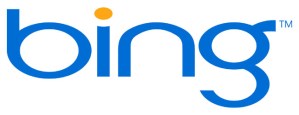
Search technology company MasterObjects has filed suit against tech giant Microsoft, claiming the company’s instant search technology in Bing and other services violates their U.S. patent 7,752,326. The company filed the suit in the U.S. District Court of the Northern District of California; MasterObjects is located in San Francisco. MasterObjects claimed it created the technology back in 2000, and filed for patent protection in 2001 and 2004. The U.S. Patent and Trademark Office granted the patent in July 2010.
The suit describes technology that narrows down a list of available search results as a user types more characters into a search field. The functionality closely mirrors that of the instant search functionality Microsoft has integrated into its Bing search engine, as well as other software products.
Last month, MasterObjects filed suit against Google and Amazon.com over instant search features that bring up search results as users are entering their queries.
MasterObjects’ suit against Microsoft says it first went to Microsoft about the technology back in 2008, although MasterObjects says the company’s infringement dates all the way back to 2006 in products like MSN Search and WIndows Live Search. MasterObjects currently implements the technology in its own QuestFields product.
Microsoft has declined to comment on the suit.
Instant search is seen as a new functionality frontier for Internet search engines, and got high visibility when Google rolled out Google Instant in September 2010. Microsoft’s Bing followed up with a similar feature in March of this year.
Editors' Recommendations
- Google’s ChatGPT rival just launched in search. Here’s how to try it
- Why I still use Microsoft’s Office suite instead of Google’s free options
- A Windows 10 update brings Microsoft’s excellent new Edge browser to the masses


